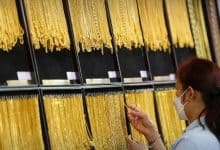Thai political truce sparks hopeful business and economic recovery prospects

Thailand‘s business leaders anticipate a more positive path for the Move Forward Party (MFP) and its seven ally political parties to constitute a government and address economic challenges, following the agreement on a House speaker. The MFP had earlier been engaged in disputes with the Pheu Thai Party over this significant role in the House of Representatives.
The conflict was resolved on the commencement day of the new parliamentary session this week. The leader of the Prachachat Party, 79 year old Wan Muhamad Noor Matha, was selected, indicating a compromise between the two parties, Bangkok Post reported.
Chairman of the Thai Chamber of Commerce, Sanan Angubolkul, interpreted this House speaker selection as a sign of the eight parties’ continuous alliance. According to him, they are collectively focused on the same goals defined in their memorandum of understanding, with the shared ambition to nominate MFP leader Pita Limjaroenrat as the upcoming prime minister.
Sanan added that these developments clearly demonstrate that the formation of the government is moving forward following democratic principles. With the speaker issue now addressed, the emphasis will likely be on the prime minister’s election. Sanan said…
“We have to closely monitor every step of how the selection process for prime minister will unfold. If a new government can be formed without protests and stabilises, the economy should be able to recover quickly, in line with the positive economic outlook predicted by various agencies.”
He further added…
“The World Bank recently upgraded Thailand’s growth forecast for this year from 3.6% to 3.9%.”
Chaichan Chareonsuk, Chairman of the Thai National Shippers’ Council, affirmed that the House speaker’s selection was appropriate as Wan is considered a politically seasoned and neutral individual capable of collaborating with all political parties.
Chairman of the Federation of Thai Industries (FTI), Kriengkrai Thiennukul, added that the business sector would prefer a stable political climate without conflicts, which is essential to establish business confidence among investors. The political landscape has been under the keen watch of both Thai and foreign investors since the May 14 General Election to determine who will succeed the current Prime Minister Prayut Chan-o-cha.
Domestic and international factors affecting the economy and the current political situation are some of the crucial subjects to be discussed by the Joint Standing Committee on Commerce, Industry, and Banking (JSCCIB) at their scheduled meeting today.
The slowed export growth, causing anxiety among manufacturers and exporters, is another key issue, as disclosed by the FTI. It was revealed that the customs-cleared value of exports has seen a decline for the consecutive eighth month, falling by 4.6% to 850 billion baht (US$24.3 billion) in May.
The FTI predicts this year’s export growth for Thailand to be zero, or at worst, a contraction of 1%. As part of its strategy, the federation intends to ask the JSCCIB to establish a panel to facilitate a plan to export crops to the Gulf Cooperation Council.
Latest Thailand News
Follow The Thaiger on Google News:


























